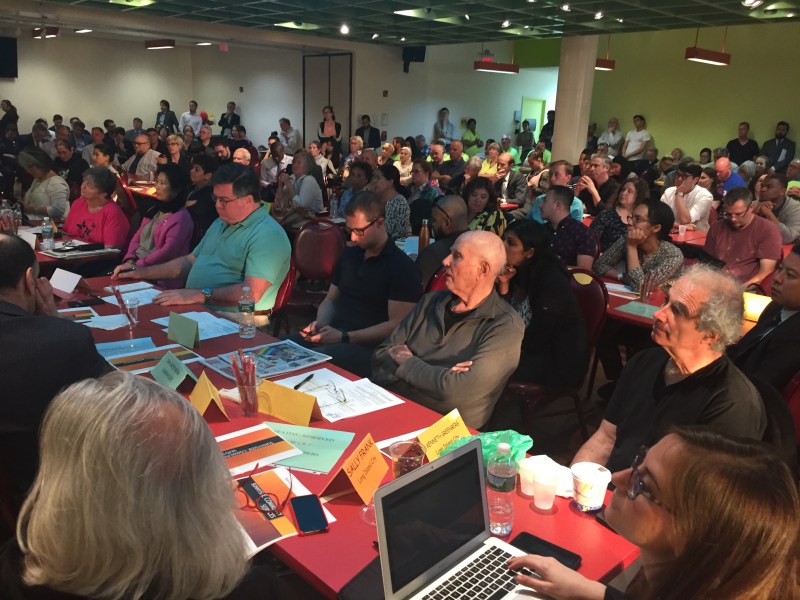Community boards should better represent the districts they serve, according to testimony provided to the Charter Revision Commission.
Established by Mayor de Blasio at the beginning of his second term, the commission is soliciting ideas to improve how city government works. During a series of hearings, community boards emerged as one of five policy areas that drew the most comments, according to a new report by commission staff [PDF].
Community boards were written into the charter in 1963. And when it comes to wielding their outsize clout over how street space is allocated in the 21st century, many (but not all) behave as if Futurama is still the cutting edge.
The lack of turnover contributes to the problem. Borough presidents and council members reappoint the same people over and over again, allowing membership to stagnate to the point that boards "may no longer reflect the changing Community Districts that they serve."
One way this manifests is the insistence on maintaining free curbside parking for the few at everyone else's expense. From the report:
To demonstrate the impact of this lack of diversity, one member of the public described a past vote by a Community Board recommending against a variance for a non-profit health clinic due to parking availability concerns, despite the fact that the clinic “would have addressed an important need in [the] community: [i]mproved health care outcomes for low income immigrants of color.”
To help diversify community board rosters, members of the public, officials, and policy experts testified that board appointments should be limited to anywhere from two to five two-year terms. The drawback of shorter term limits is the loss of expertise. It can take a few years to learn the ropes. But even 10-year term limits (longer than what's available to members of the City Council) would cull scores of lifers like Queens CB 11's Bernard Haber, who's held his seat since the 1970s. The report recommends further study.
Appointment processes that generally favor the politically connected were also singled out for reform. Application protocols vary from borough to borough. In Queens, for example, it's secretive enough that Borough President Melinda Katz tries to hide appointees' names from the public. In some cases, community boards function mainly as extensions of the local political boss's influence network. The report suggests standardizing the appointment process to make it more legible and accessible to the broader public.
Finally, the report says community boards need more resources, including access to planning expertise. Another proposal is to provide board members with training in areas where they hold influence, like land use.
Legislation in the City Council endorsing community board term limits, better demographic representation, and a more transparent appointment process has been introduced but gone nowhere in recent years.
The Charter Revision Commission will continue its work through the summer and fall, with more public hearings coming up this month. Ideas that surface during the process can be incorporated into ballot initiatives to amend the charter, city legislation, or updates to city rules. It will be up to the 15-member commission to generate final recommendations and ballot proposals for November.






